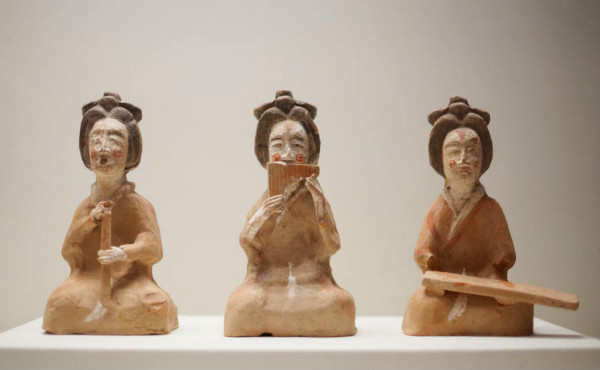Rural cultural relics require due preservation
 |
|
Pottery figurines from the Sixteen Kingdoms period (about 1,600 years ago) portraying women playing music are on display at the Tianjin Museum in Tianjin, March 18, 2017. [Photo/VCG] |
Ten frescos that were later classified as cultural relics that should be under national level protection were stolen from Longtian Temple in North China's Shanxi province in October. When the police finally caught up with the gang responsible for the theft, after a half-year investigation, they unexpectedly discovered more than 400 stolen frescoes from other temples in the province. Guangming Daily comments:
It is estimated that Shanxi has about 70 percent of the country's ancient frescos, which are housed in a number of deserted or ill-managed Buddhist and Taoist temples in rural areas. Some temples that are county-level cultural relic protection sites are even visited by thieves repeatedly within a short period of time.
The local authorities invariably attribute the thefts to the lack of funds needed to protect these cultural artifacts. In fact, few local officials think the stolen frescoes are important. Different departments of the grassroots governments are jointly responsible for their protection according to law. Yet no one is held accountable when any cultural relics are damaged or stolen.
If the situation remains unchanged, the thieves and dealers will become increasingly unscrupulous and bold, grabbing the cultural artifacts from one temple after another, fattening their pockets with public assets.
Local governors need to come up with good plans to develop rural tourism, so the cultural treasures in the mountains and fields can be turned into tourism resources, which will help protect them by materializing their cultural and artistic value.



















